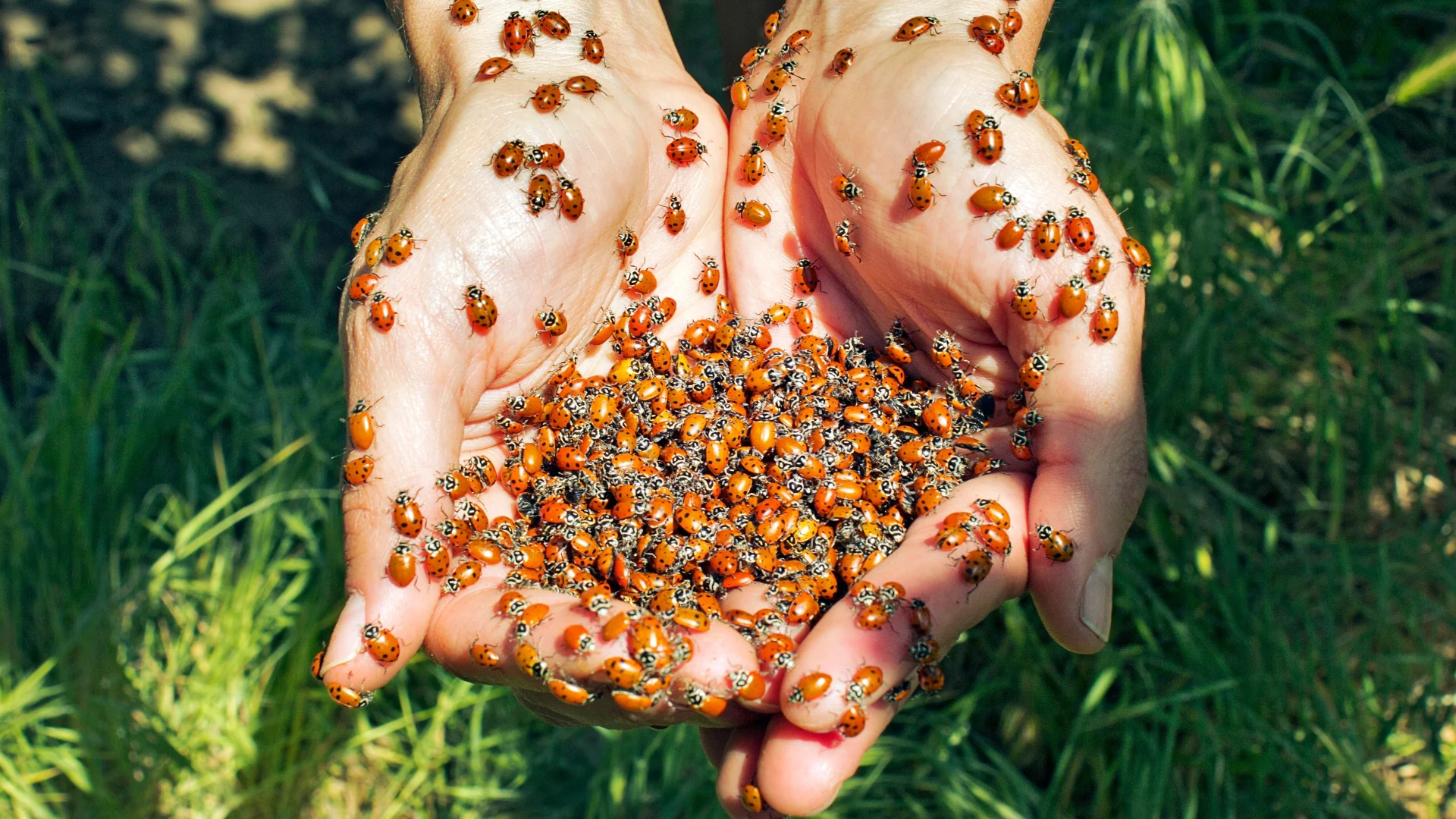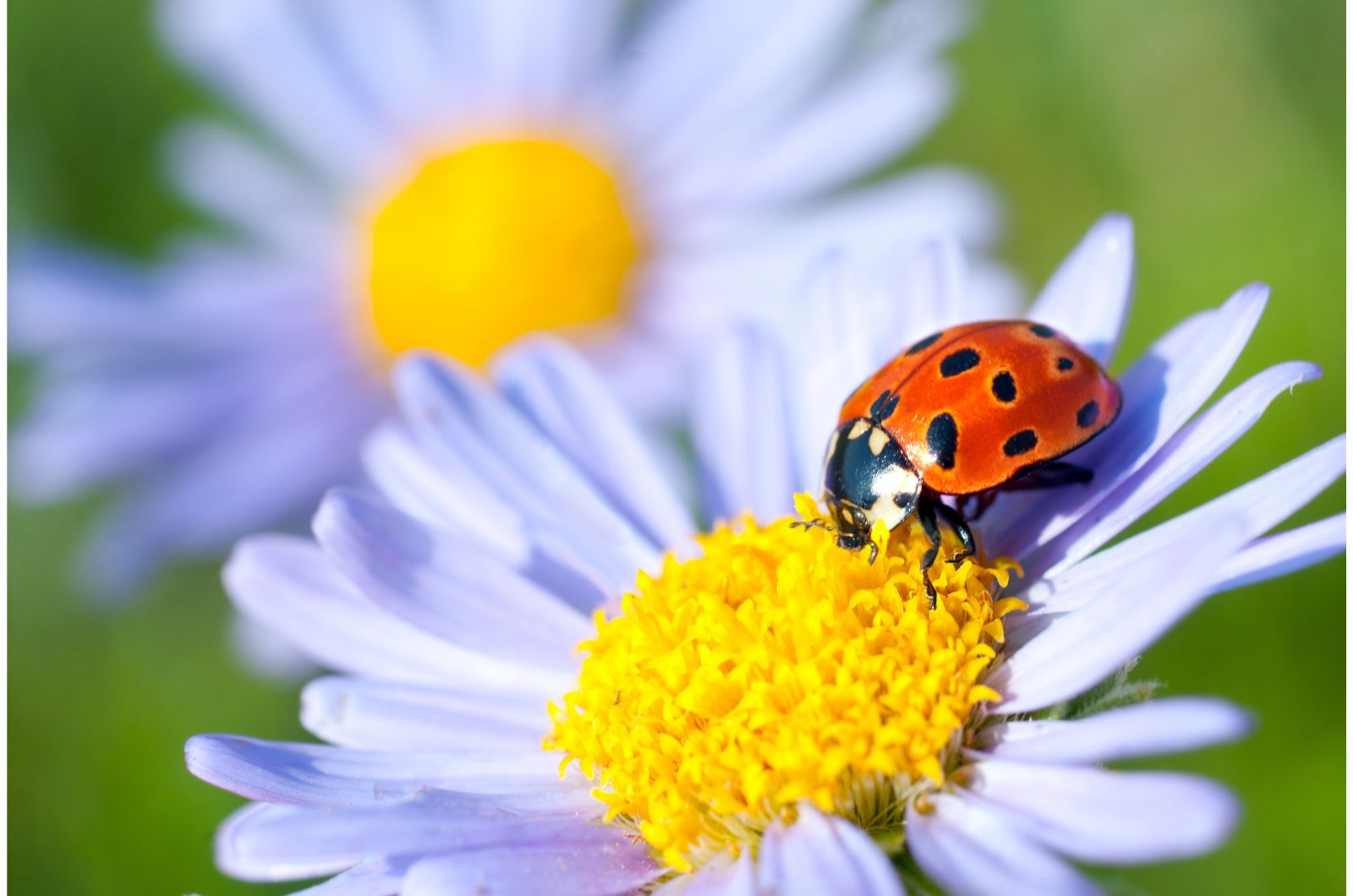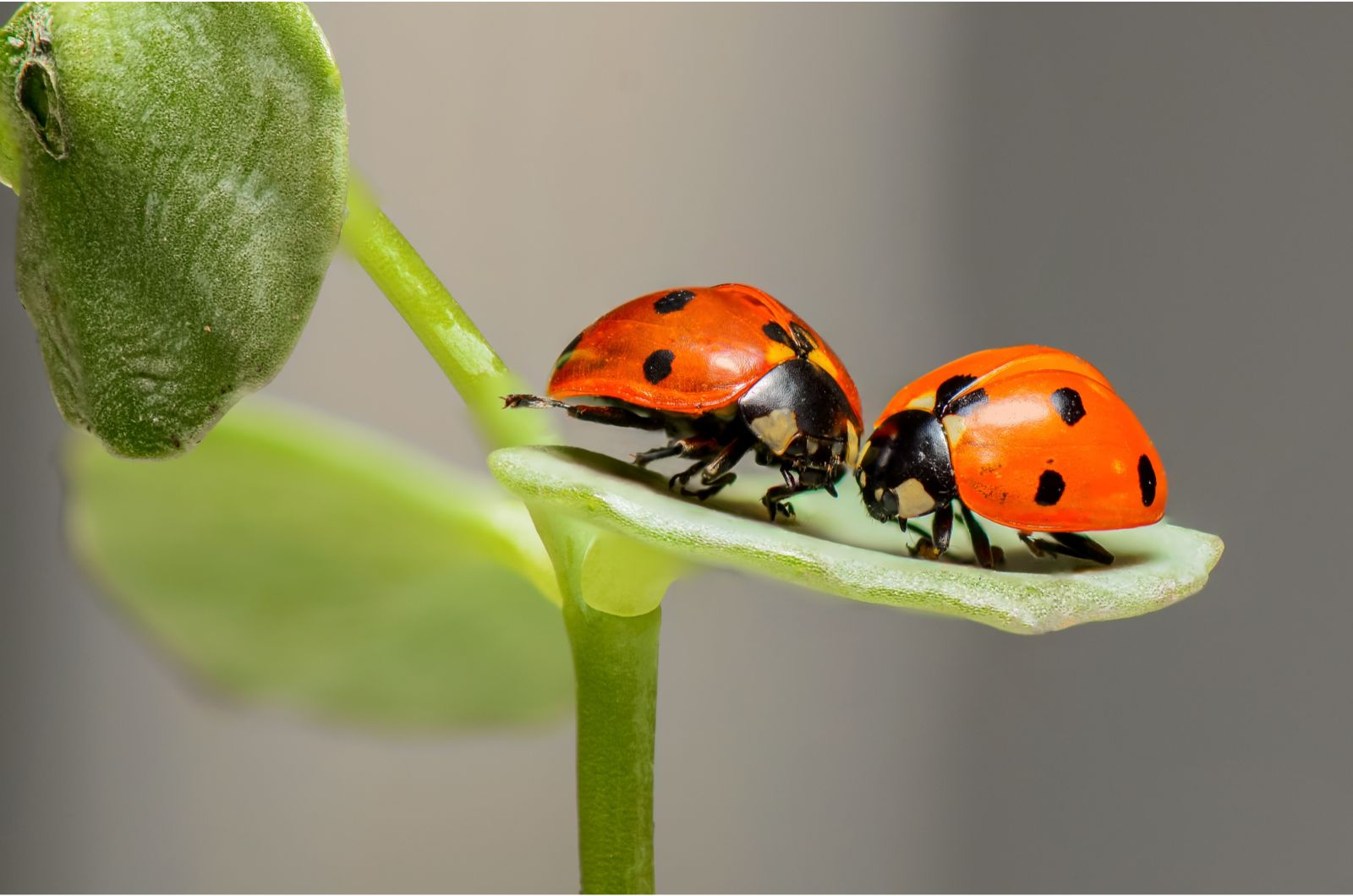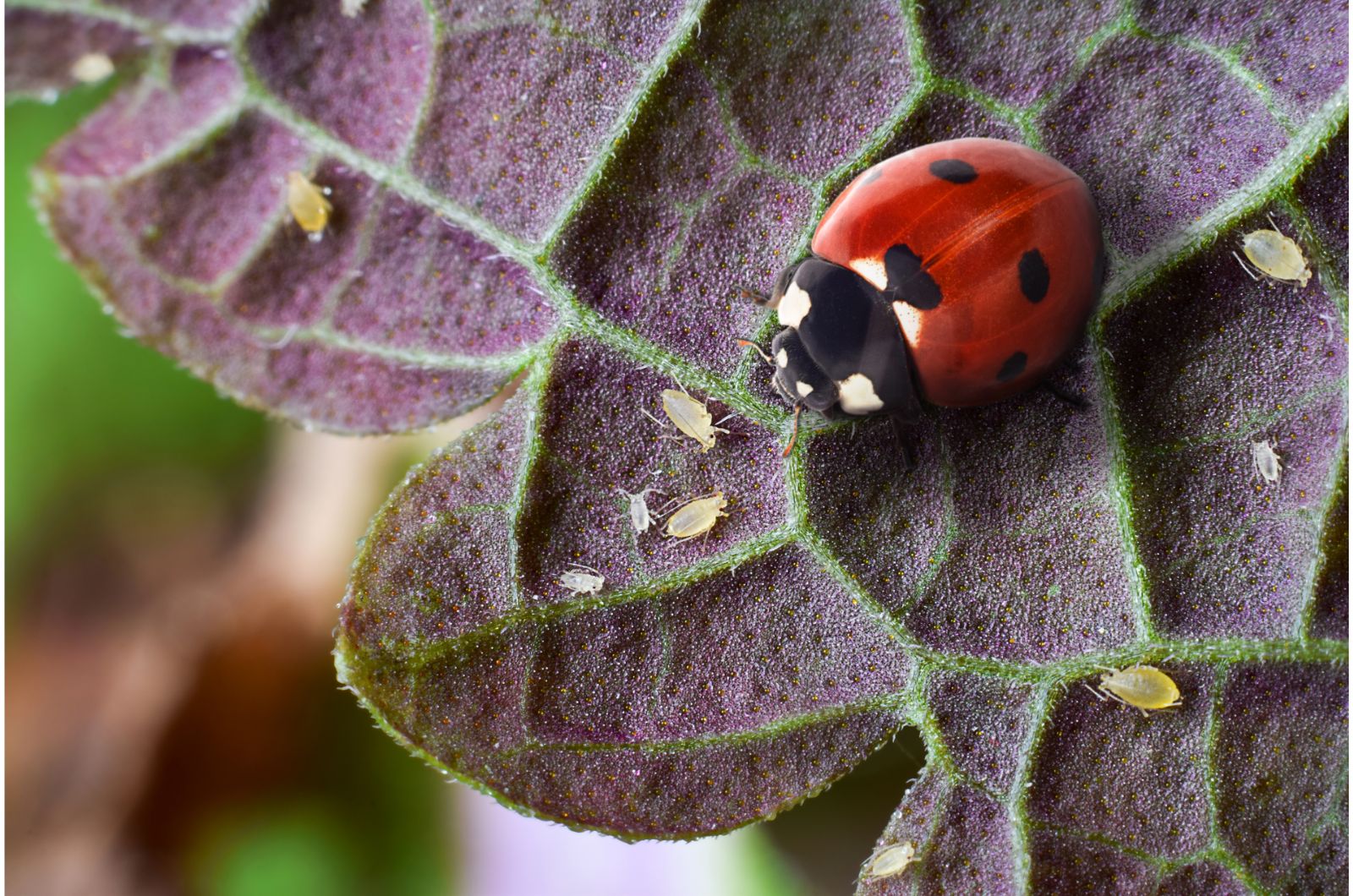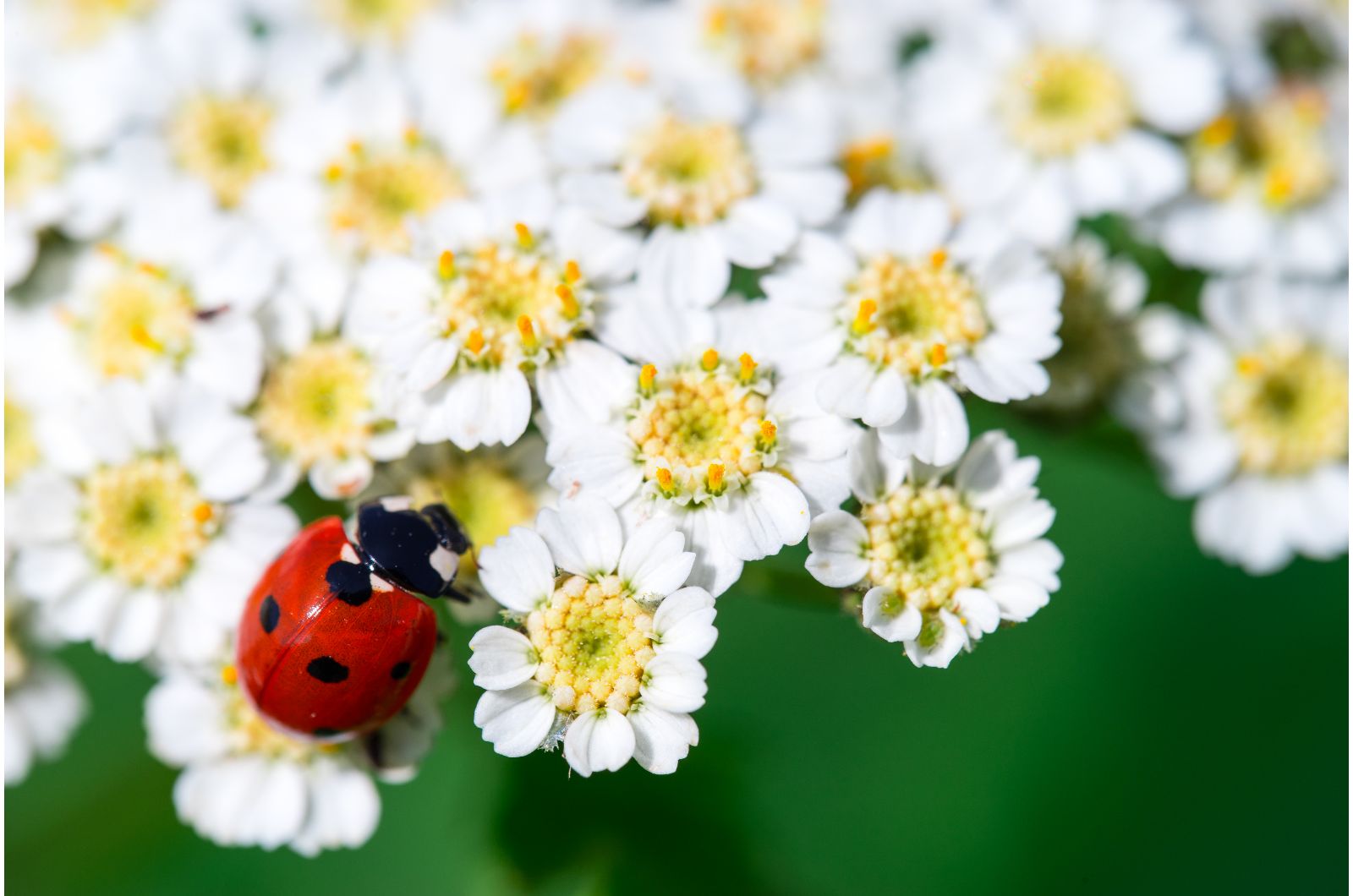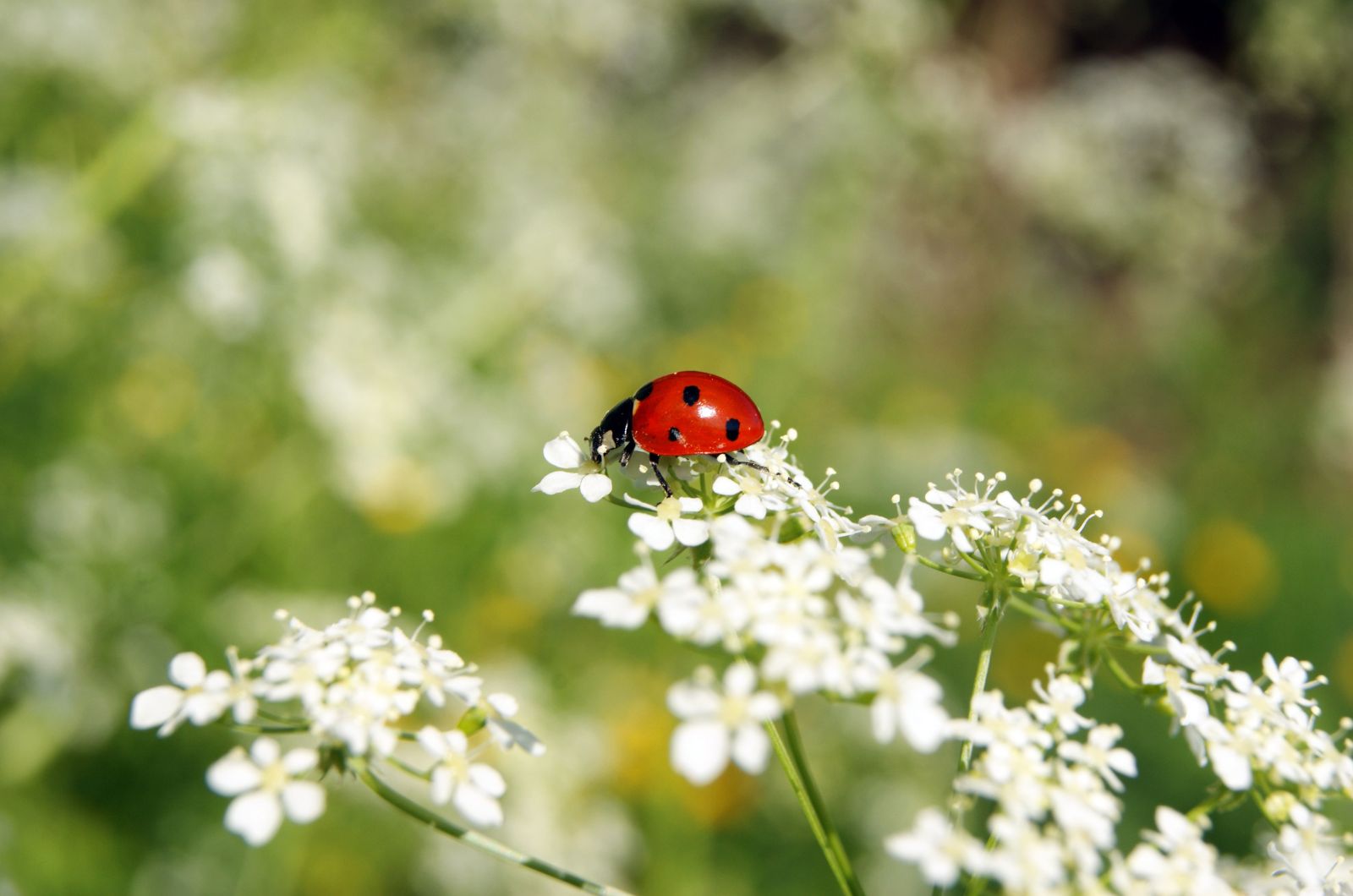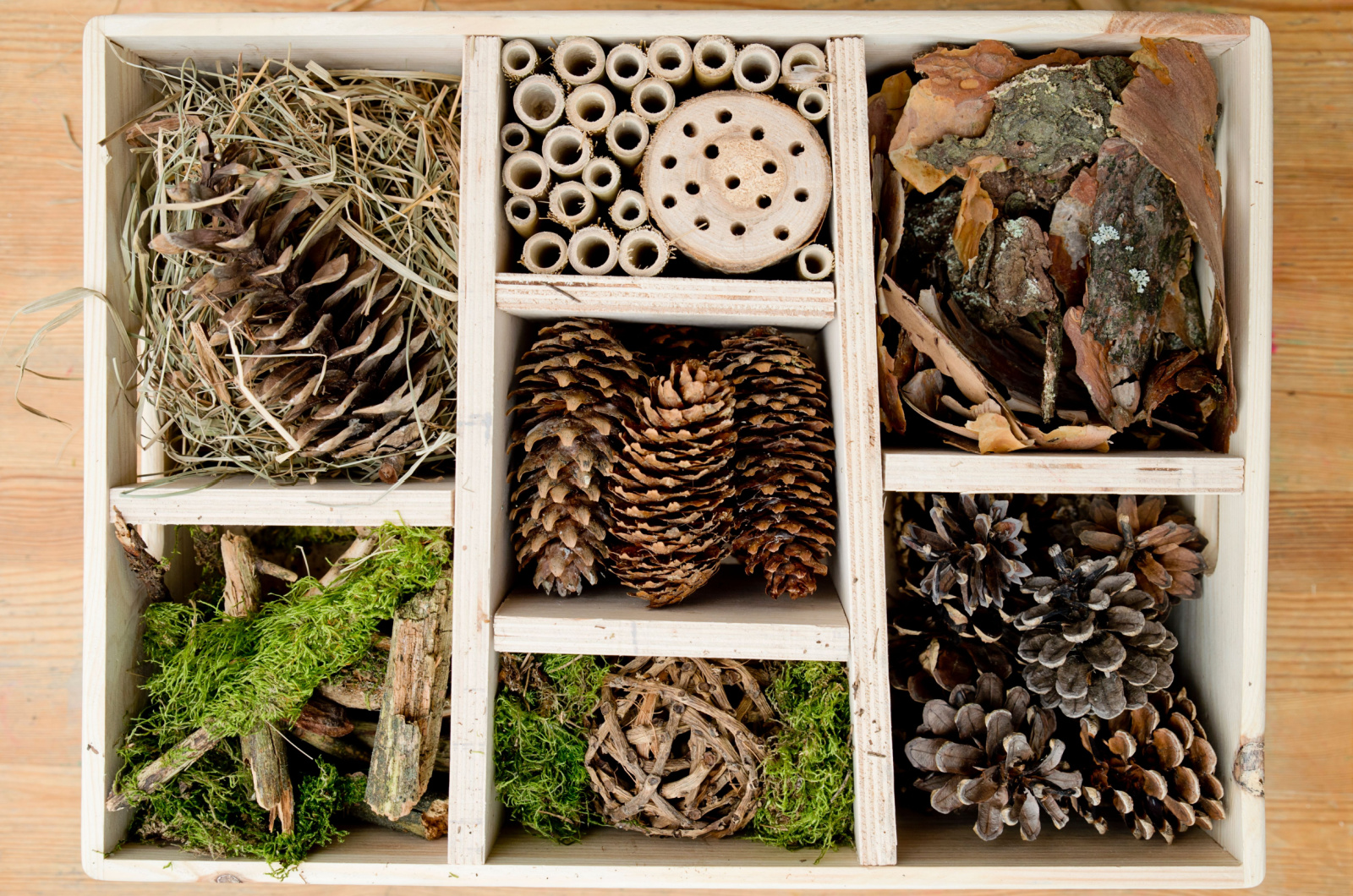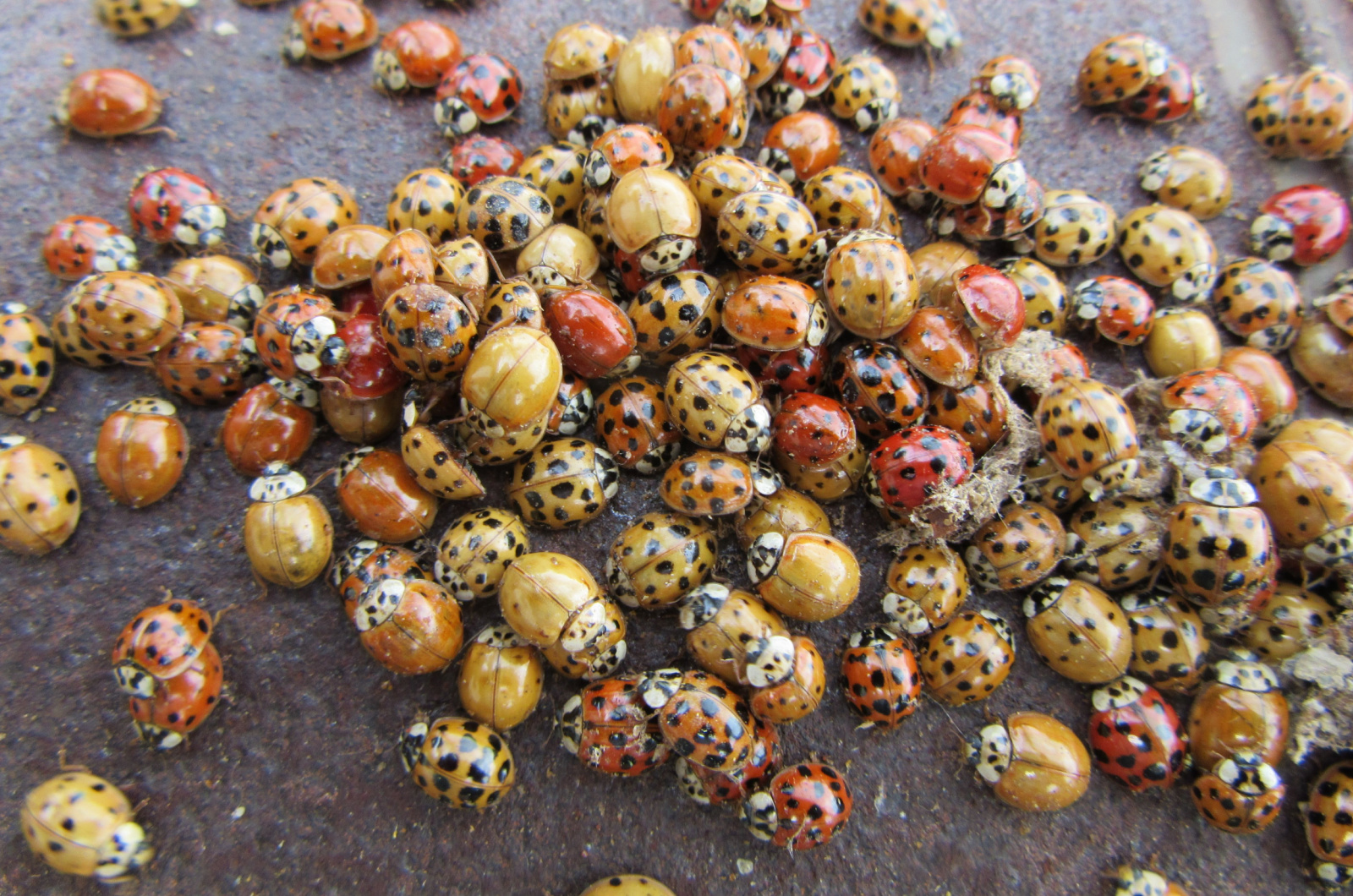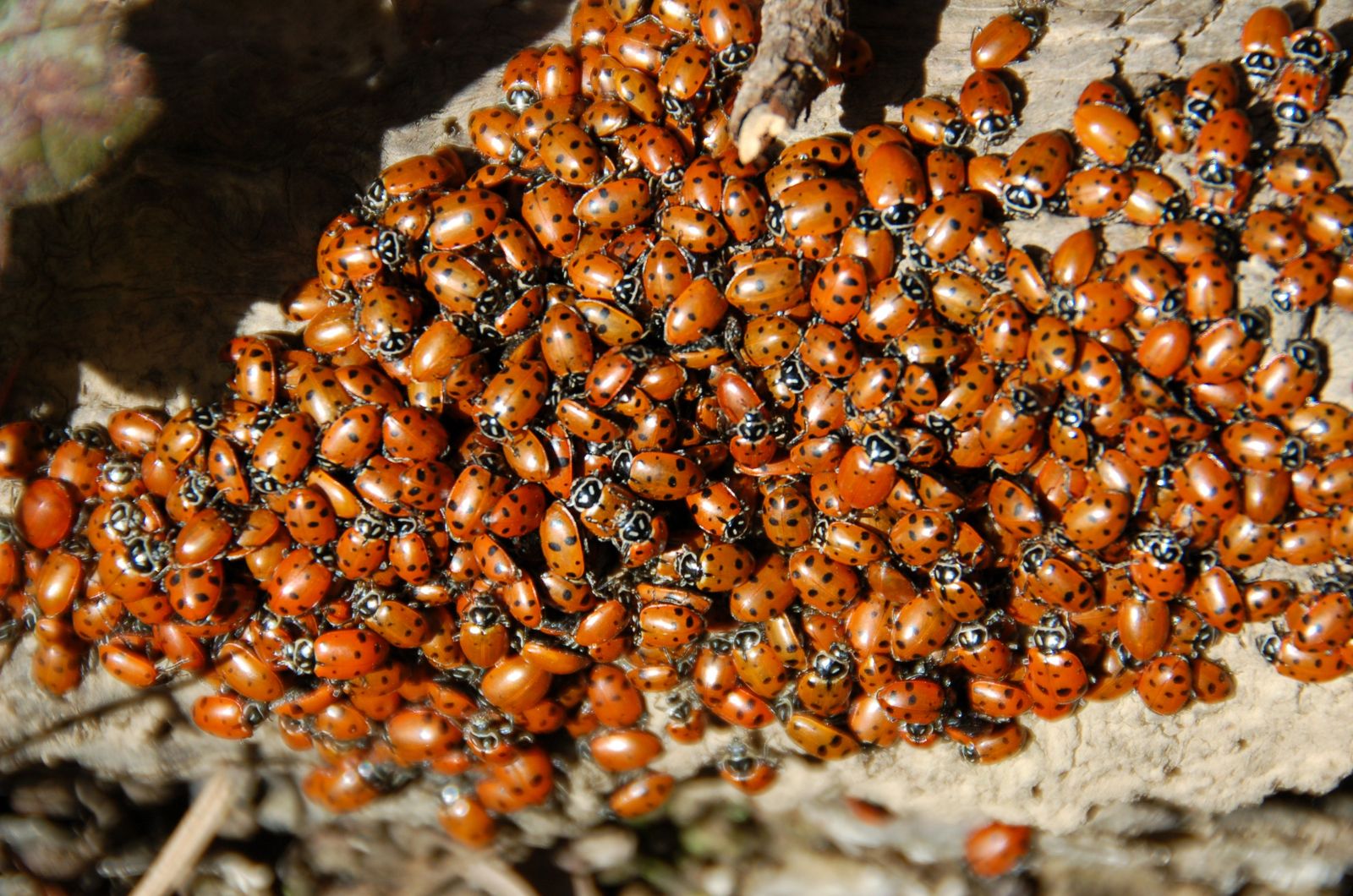Ladybugs are tiny guardians that make your garden work. They do so much yard work, yet they go unnoticed.
Encouraging these beneficial insects in your garden can increase biodiversity, boost the health of your landscape, and yield you a larger harvest.
How? Find out below!
The Role Of Ladybugs In Your Garden
Did you know that ladybugs could save the world? They play a crucial role in biological pest control, feeding off common nuisances such as aphids.
They help to keep many different pests in check, preventing them from doing serious harm to your garden and the overall ecosystem.
Yet, getting rid of harmful insects isn’t the only thing ladybirds can do for your garden.
They can…
3 Benefits Of Ladybirds
… pollinate your flowers and keep your garden looking its best, in addition to munching on pesky mites and mealys.
Here are some more details!
#1 Aesthetics
Ladybugs are quite handy to have around, but let’s not forget how gorgeous they look. Children love them and they bring so much joy and diversity to our gardens.
Nothing beats finding a tiny lady beetle on a white or purple flower!
#2 Biological Pest Control
If you’ve had issues with crepe myrtle pests and getting rid of them, know that ladybugs could give you a hand.
These beneficial bugs are natural predators of aphids, whiteflies, spider mites, mealybugs, and lace bugs.
What I love about ladybirds is that they will get rid of the infestation without causing any harm to other beneficial insects. That’s why they’re better than pesticides!
Also, lady beetles will leave your flowers and vegetables in peace. They won’t cause damage to your plants, which is why they’re one of the safest methods of pest control.
#3 Pollination Assistance
I don’t know about you, but when I think of pollination, it is butterflies, bees, and bumblebees that spring to my mind. But let’s not forget how important ladybugs can be in this role.
They feed on flower nectar just like all the other pollinators. As they move from flower to flower, they transfer pollen on their tiny feet and pollinate the blossoms.
Once they land on a flower, they cause vibrations that loosen the pollen. This makes it easier for the wind, rain, and other pollinators to transfer it.
Such pollination assistance will increase your yield. Just wait and see!
How To Attract Ladybugs
Now that you know how helpful ladybugs actually are, let’s see how you can attract them to your yard!
The key is to ensure they have food and shelter.
Plant The Right Flowers
To attract these tiny guardians, you have to have the right flowers. Daisies, yarrow, marigolds, and even sunflowers are all excellent choices.
These bugs also love herbs, so adding a little bit of dill here and some fennel there should do the trick.
Planting a wide range of these flowers will attract ladybugs to your landscape.
But there’s one thing you have to STOP doing – using pesticides. These chemicals can harm ladybugs and reduce their population in your garden.
Instead, focus on natural pest control methods. Companion planting and introducing other pest predators will help more than you know!
Give Them Shelter
When I was a child, I keenly remember building ladybug hotels with my mom as my favorite pastime. And that’s exactly what you should do if you want more of these beetles in your garden.
Create a habitat that suits them to a T!
Add plenty of hiding places. These insects love to hide in the shadows during the day when they’re not hunting.
Ensure they have a water source nearby. All animals have to drink – ladybugs included! Intersperse shallow plates and trays filled with water all around your garden.
Just remember to replace the water every couple of days. If it goes stale, it will attract mosquitoes!
Purchase Them
If these two things fail to yield any results, there’s one more thing that can help you out – the Internet!
You can order ladybugs online or hop down to your local nursery and get a fresh batch. Create a habitat that they will love, introduce your store-bought ladybirds, and they will quickly get to work!
Can Ladybugs Pose Danger To A Garden?
Ladybugs are usually safe around the garden. Yet, if there are no natural predators that feed on these bugs, they can infest your garden.
They don’t pose a serious threat to your plants, but pests such as Mexican bean beetles, and non-native species such as Asian lady beetles, can harm your plants in the long run.
The good news is that they don’t carry any diseases dangerous to you or your pets.

